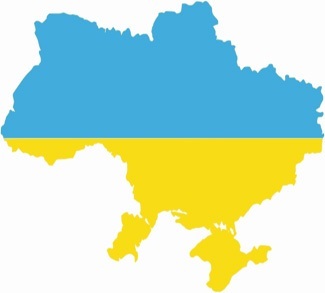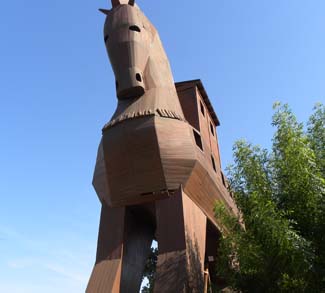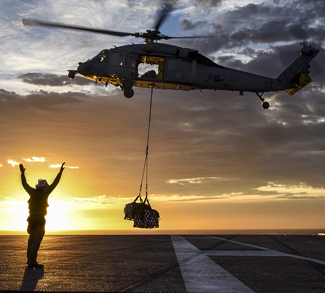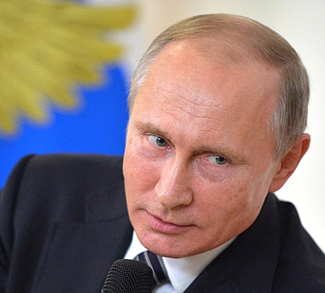The crisis in Ukraine and the Crimean peninsula is the culmination of a 1500-year struggle for domination between the two Rus’ cultures, amid the waxing and waning of regional empires and great powers.
Ethnic Ukrainians are the descendants of the Kyivan Rus’, who have had their homeland in the northwest of today’s Ukraine, centered on the ancient city of Kyiv (Kiev), since the 6th century AD. Modern European Russians are the inheritors of the Moscovy (Moscow) Rus’, and have always been expansionist and forceful in spreading their influence and dominance.
During the Middle Ages, both Rus’ cultures were powerful warrior states, with the Kyivans the larger of the two, until the 13thcentury when Mongolians invaded from the east; and then everything changed in eastern and central Europe. The Russians fell under the domination of the Golden Horde, and the related Tatars took control of Crimea and the northern coast of the Black Sea.
Under the protection of the Turkish Ottoman Empire, the Muslim-faith Tatars established the Crimean Khanate which controlled the Black Sea coast of modern Ukraine until the Ottoman decline, and the forceful expulsion by Tsarist Imperial Russia in the early 18th century.
The Mongol invasions caused the rise of central European great powers, with Lithuania and Poland coming into conflict with the Kyiv-Ukrainians from the northwest, and later, the Austro-Hungarians from the southwest. These central European powers did not rule with a gentle hand; the Ukrainians have been hard-used by all foreign overlords and raiding nations throughout their history, whether the foreigners in question came from the east, west, or south.
The lessons of history show that the borderland that is Ukraine has always been contended over by great powers, and the only constant has been the Kyiv-Ukrainians in the north and west of the country; and the only way out of this destructive cycle is to break the shackles of history.
Ethnic Russians are a long established fact of life in southern and eastern Ukraine, and as a large minority, must be included in a united Ukraine, even though ethnic-Ukrainians suffered greatly under the Russian yoke from Imperial to Soviet times. The Crimean Tatars enslaved millions of non-Muslims in the region until the late 18th century; but that is also well in the past. A tyranny of the majority ethnic Ukrainians seeking revenge for past misdeeds will only create greater troubles.
Today’s great powers continue to play games with Ukraine; and much of the current crisis can be laid at the feet of the United States and the European Union who have tried to draw the Ukrainians away from eastern influence with promises of EU and NATO inclusion. This is a situation that no Russian leader could allow, whether a strongman like Vladimir Putin or someone more moderate; Russian industry and infrastructure is far too integrated, especially oil & gas transmission, for such a complete transformation to be allowed; and the Russian Black Sea Fleet, based on the Crimean Peninsula, is of the utmost strategic value.
The only viable path forward for a united and prosperous Ukraine is to become a neutral state from a military perspective while keeping to the terms of the Russian basing lease agreements that currently exist. Foreign trade and investment should not fall into an East-West us-or-them format, but work towards the most effective use of resources and infrastructure, with an eye to future opportunities. Eastern Ukraine is heavily intertwined with Russian industry and infrastructure – nothing will change in the near future.
If Ukraine takes this unity and neutrality path for a better future, then Canada and Switzerland are two nations that have well founded experience that can be applied. The Swiss have long been a militarily neutral state in the centre of Europe and are perhaps the best example of how to deflect the attentions of contending great powers while retaining a defensive military force to take on any aggressor.
Canada has an official bilingual policy that is not perfect, but can be a template for bilingualism in Ukraine that would have regional dominance for Ukrainian or Russian, but any citizen must be able to get services in their official language. Corruption has been a long-standing problem within Ukraine, and as Canada is often acknowledged as having the best banking system; help in restructuring Ukraine’s financial sector and bureaucratic oversight is something that should be offered by our federal government.
The ramifications of the First World War still echo loudly in the context of the current Ukrainian Crisis. Tsarist Russia’s participation in the world-wide conflict, in conjunction with strategic overreach, strife between the peasantry and elites, and internal economic troubles caused the death of the Empire; and the beginning of Soviet tyranny. The communist Bolsheviks gained control of Moscow in 1917, and it was only through bluff, bluster, ruthlessness, and a great deal of luck that they eventually defeated the other Russian military forces arrayed against them.
This interim period, while the Russians fought each other, was an opportunity for Ukrainian nationalists to break away from Russian domination, but there could be no strong front against the Red Army to the east while Poland challenged for western Ukrainian lands in the Polish-Ukrainian War (1918-19). The newly termed Russian Soviets re-established Moscow’s control over all of the old Tsarist holdings in Europe, and Ukraine became one of the founding states of the Union of Soviet Socialist Republics (1922).
The armistice that ended World War One sounded the death knell for several empires, and laid the foundations for World War Two. Winston Churchill believed that American insistence that the empires and monarchies of the defeated powers be dismantled was one of the great tragedies of modern history; and postulated that constitutional monarchies would have helped stabilize post-war Germany, Austro-Hungary, and the Turkish Ottomans. The dismantling of the latter two removed any possible contenders for domination in western and southern Ukraine, and the weaker remnants of these empires were far easier for Moscow to intimidate and influence. History may be repeating itself.
The Nazi invasion of Ukraine (1941-44) during WWII saw some western Ukrainians siding with the Germans, others aligning themselves with the Russians, and the Ukrainian nationalists bravely fought both sides. Once again, there was to be no free Ukraine.
We are nearing the 100th anniversary of the First World War, sometimes called the Great War or “The War to End All Wars”, and Vladimir Putin’s annexation of Crimea may set the stage for a renewal of empire building akin to the 18th and 19th centuries. If the Americans and other Western allies do not play their cards right, then we may be entering another catastrophic era of armed conflict, especially with communist China on the sidelines wondering if they can now pursue “reunification” with Taiwan and the many other lands surrounding the Middle Kingdom.
The great powers need to stop the tug-of-war for East-West dominance of Ukraine; and the Kyivans and Moscovy will need to cohabitate in a united Ukraine (with or without Crimea), while respecting all of the other minorities, including: Tatars, Hungarians, Poles, Jews, Carpathians, etc.
Mark M. Miller is a Vancouver-based research consultant who writes on international and military affairs.
The opinions, beliefs, and viewpoints expressed by the authors are theirs alone and don’t reflect any official position of Geopoliticalmonitor.com.




